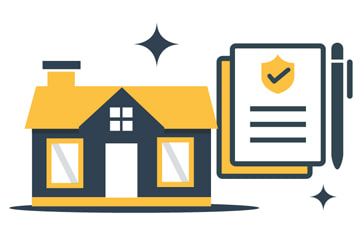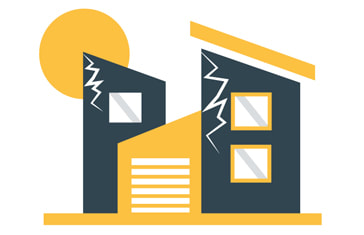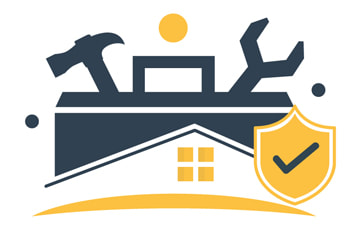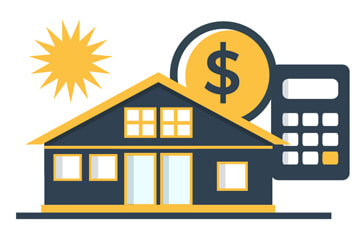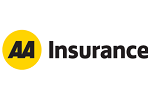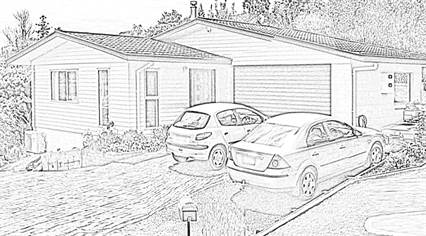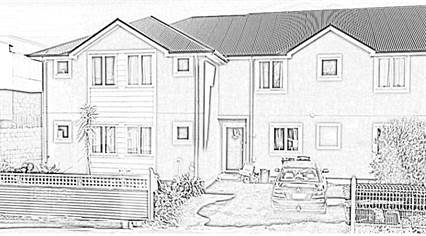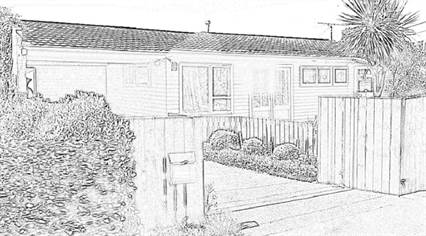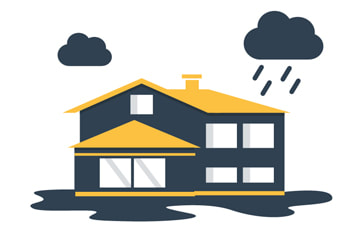Compare Landlord Insurance
Compare policies, save money and properly protect your investment.
Updated 20 July 2024
Summary of Landlord Insurance:
Our guide covers:
Disclaimer - Claims and Payouts:
Know This - The Meth Question
Advertising Disclosure: Our reviews and research findings are based on price and coverage, but some insurers may pay MoneyHub a fee for a quote or policy etc. This does not alter our results in any way. Our Advertising Policy has more details.
- Landlord Insurance is a superior type of home insurance policy which is tailored specifically for landlords and usually replaces the need for general home and contents policies. Landlord insurance protects a rental beyond standard home insurance and covers your investment property for damage and loss of rental due to events outside of your control.
- Landlord insurance is the only form of financial protection for issues arising with your tenants, but policies vary, so it's important to know what you will and won't be covered for. Only your rental property and contents are covered by landlord insurance, not a tenant’s personal property.
- Occasionally, insurers will offer landlord insurance as a "bolt on" to their range of home insurance policies.
- The landlord insurance policies we researched range in value and cover - we believe an insurance broker is useful to navigate the options and ensure you get the right cover for your specific location and property type, but not all insurance companies work with brokers so the policies offered may be limited.
- To ensure landlord insurance is valid, you will need to reference-check and take a bond from your tenants
- Cover like loss of rent is usually capped at around $20,000 or 12 months. This may sound like a lot, but situations like the Christchurch earthquakes and cyclone Gabrielle have proven that homes took much longer to repair before they could be tenanted again.
- Most insurers have implemented an internal policy of assessing properties in the 5000-9000 postcode range, with a focus on Wellington, Christchurch and Kaikoura. Properties in these areas tend to require the assistance of an underwriting team and an investigation into any previous claim(s) made.
- If you're one of New Zealand’s 500,000 rental property owners, landlord insurance is worth considering if you are renting your investment to tenants. While landlord insurance is not required to rent a property (home insurance covers the replacement value of your property), many of the policy benefits can prove very useful if you run into trouble with tenants or there is an unforeseen event.
- Frequent media reports make it known that methamphetamine contamination can destroy a property’s rental and resale potential, but instances of intentional and accidental damage are far more common. Most landlords have no idea what they are covered for and are either overpaying for insurance they don’t need or exposing themselves to a significant risk by under-insuring.
- In this guide, we list a number of tips to help you decide if landlord insurance is the right choice for your property. We outline landlord insurance covers and its limitations.
Our guide covers:
- Landlord Insurance - The Basics
- Ready To Buy Landlord Insurance?
- Best Buys - Quotes And Policies
- How To Make A Claim On Your Landlord Insurance
- Frequently Asked Questions
Disclaimer - Claims and Payouts:
- While we strive to provide comprehensive and accurate information about various insurance providers, it is important to note that insurers do not publicly publish detailed metrics on claims performance, such as claim acceptance rates, time to payout, and specific loss ratios. Our reviews and comparisons primarily focus on cost and policy coverage.
- However, we recognise that the true value of insurance is revealed during the claims process. Factors such as the responsiveness of claims managers, the support provided for large claims (e.g., access to builders, project managers, loss adjustors), and the promptness of payment are critical.
- We encourage you to thoroughly research and compare insurers based on price and their claims handling reputation. You can get insights from online reviews regarding claims experiences, although we suggest keeping an open mind as often only bad experiences are shared online.
Know This - The Meth Question
- When reviewing the T&Cs of the policies we sampled, only Initio provided full cover for methamphetamine manufacture - other policies only cover damage caused by fire or explosion from a methamphetamine lab.
- Claims are usually limited to $30,000 - recent media reports suggest methamphetamine contamination can cost the property owner well over $30,000, especially when wall linings and ceiling strip outs are required.
- In some instances, the Law Society recently claims that full demolition may be required - in a historical 2011 media story, a Hamilton property was demolished and rebuilt at a cost of around $250,000.
Advertising Disclosure: Our reviews and research findings are based on price and coverage, but some insurers may pay MoneyHub a fee for a quote or policy etc. This does not alter our results in any way. Our Advertising Policy has more details.
|
Christopher Walsh
MoneyHub Founder |
Compare Landlord Insurance Quotes With Our Top Two Insurers
|
Landlord Insurance – The Basics Explained
Landlord insurance is not compulsory, nor is it a legal requirementIf you are renting a residential property, general home and contents insurance will cover the value of your property for events like fires or earthquakes. Landlord insurance covers you for events like intentional damage to the property and/or its contents, as well as non-payment of rent or lost rental due to property damage. If you rent to what some people consider higher risk tenants (for example, students or beneficiaries) then you may find landlord insurance more beneficial compared to a situation where you rent to a mature, professional couple.
|
A landlord insurance policy provides more coverage than the standard home and contents policiesLandlord insurance cover does range between providers, so it’s essential to check the terms and conditions in detail. Generally, the more coverage, the higher the cost. Standard cover usually includes:
Every policy differs; don't assume you'll be covered without reading the fine print. |
Be aware of what’s not coveredNot all policies are the same, and it’s essential to know the fine print before taking out a policy. Some policies will cover unpaid rent; others will argue that it’s a “payment risk” best managed by you so they won’t pay out.
Furthermore, “gradual damage” may be excluded which means that if a tenant never tells you about a leaking pipe and it causes damage over time, you could be uninsured. “Wear and tear” is also likely to be excluded, meaning upgrading wooden windows to aluminium because of rot won’t be covered. And a tenant who moves out and leaves a mess may not constitute “damage” so you won’t be able to claim. Landlord insurance is not straightforward at all, so you'll need to understand your policy to make the best choice. For this reason, consulting with an insurance broker is a popular option to pick the right policy for your needs. |
Professional membership in the New Zealand Property Investors' Federation (NZPIF), renting it through a real estate agent and/or being a member of any local landlord association does not provide coverSuch memberships may require a fee but offer no protection should something go wrong with your property. Landlord insurance is the only form of financial protection that can compensate you for issues arising with your tenants and/or general loss.
|
If your property is furnished with valuable assets, landlord insurance MAY be an essential expenseIf you have valuable whiteware and/or furniture you’d like to protect from theft or damage, getting landlord insurance that specifically covers contents cover is probably in your interests. Of course how much cover you will need really depends on the quality of what you’re insuring. Likewise, if you have cheap contents that you could replace for next to nothing, it may not be worth insuring.
|
Your tenants' contents won't be covered by landlord insuranceOnly your property and contents are covered by landlord insurance, not your tenant’s personal property. So, if someone breaks in and steals your tenant’s phone and TV, unless they have their own contents insurance, they are not covered. Make sure to tell your tenants this to avoid any misunderstanding should something unfortunate happen.
|
You’ll need house insurance to get a mortgage for your investment propertyTo get a mortgage for your rental property, the lender will require you have insurance on the property to cover its value. Standard home insurance will provide this, but if you want further protection so you won’t be exposed if and when something unfortunate occurs (as mentioned above), landlord insurance will be the only policy you need.
Even if you don’t have a mortgage on the investment property, some form of insurance over the property is recommended – landlord insurance covers all the basis for the duration of your investment. |
Converted a family home to a rental property? You will need to arrange new insuranceThis is quite common all over New Zealand. The situation arises when someone inherits a property and decides to rent it out, and when someone moves into his or her partner’s home and decides to rent out their existing home. You’ll need to notify your lender if there is a mortgage on it, but most importantly, you’ll need the right insurance to cover the actions of tenants. Without it, any claim on your existing home and contents insurance would be invalid given you are not living in the property.
The process is easy:
|
What information do I need to provide to an insurer to get a quote?The insurer and/or an insurance broker will need to know a few details before being able to quote. The process is simple, and requires entering basic information about the property and providing some simple numbers and dates.
You’ll be asked the following key questions in most situations:
Replacement Cost Estimates - What to Know
Important things to know:
|
In many situations, an insurance broker will know bestThe landlord insurance policies available are a mixed bag, and no one wants to be caught out by loopholes and tricky exclusions. A broker will look at every risk rather than just “big risks” such as fire and flooding.
Best of all, a broker won’t cost you any more - brokers get paid a commission by the insurance companies they work with and if you need to make a claim, they can assist you to make sure you present your best case. |
Some policies are “bolt-on” to home insurance, meaning they cover rental property-specific eventsBanks and other lenders also offer a form of landlord insurance, meaning they cover:
These are worth considering as an alternative to stand-alone landlord insurance - while they often won't be as comprehensive, they can offer considerable savings. |
Your policy may require you to follow guidelines to be eligible to have a claim paidIt’s all very well having landlord insurance, but if you don’t reference check and take a bond, making a claim for damage to your rental property may be problematic. Policies vary, but generally, to be eligible to make claims you’ll need to:
If you use a professional property manager such as a real estate agent, you may find this is already done for you, but do check as you may have a claim refused if there has been a lack of care taken. Some policies, such as AMP's EverydayPlus Landlord insurance requires you to go further by:
|
|
Christopher Walsh
MoneyHub Founder |
Compare Landlord Insurance Quotes With Our Top Two Insurers
|
Ready to buy landlord insurance?
Once you’ve become familiar with the basics and have made a decision to get landlord insurance, it’s time to get the best quote for your needs. Unlike home and travel insurance, there are no price comparison websites for landlord insurance.
Get the best policy without becoming overwhelmed by the details:
Tip 1 – Read our Best Buy Landlord Insurance policies below to get an idea of price and coverage
We have put together a number of quotes from Tower, AMI, AMP, AA Insurance, State and other landlord insurers for a number of sample properties. The purpose is to help landlords understand the cover level and make it easier to pick the right policy while reducing the chance of overpaying for cover.
Tip 2 – Contact an insurance broker
Insurance brokers are the experts and will have access to market information and quotes that you won’t. If you have a specific requirement or want to talk to someone about a particular issue, searching for recommended local brokers is the way to go. As mentioned above, not every insurance company works with brokers, so the policies offered by a broker may not be the full range available in the market.
Tip 3 - Check your policy
Make sure the quote offers the right coverage, and consider what excess levels or extra coverage you are happy with. All other factors being the same, a higher excess and lower coverage sum usually means a cheaper quote, so it’s worth adjusting the policy details to get a cheaper quote.
Tip 4 – Lower the excess only if your insurance is fully comprehensive (and vice versa)
As mentioned above, the smaller your excess, the higher your annual premium. Landlord insurance excess ranges from $300 to $2,500. If you want full coverage for instances of theft and burglary damage, it’s probably best to choose a lower excess so you can claim without too much penalty.
Get the best policy without becoming overwhelmed by the details:
Tip 1 – Read our Best Buy Landlord Insurance policies below to get an idea of price and coverage
We have put together a number of quotes from Tower, AMI, AMP, AA Insurance, State and other landlord insurers for a number of sample properties. The purpose is to help landlords understand the cover level and make it easier to pick the right policy while reducing the chance of overpaying for cover.
Tip 2 – Contact an insurance broker
Insurance brokers are the experts and will have access to market information and quotes that you won’t. If you have a specific requirement or want to talk to someone about a particular issue, searching for recommended local brokers is the way to go. As mentioned above, not every insurance company works with brokers, so the policies offered by a broker may not be the full range available in the market.
Tip 3 - Check your policy
Make sure the quote offers the right coverage, and consider what excess levels or extra coverage you are happy with. All other factors being the same, a higher excess and lower coverage sum usually means a cheaper quote, so it’s worth adjusting the policy details to get a cheaper quote.
Tip 4 – Lower the excess only if your insurance is fully comprehensive (and vice versa)
As mentioned above, the smaller your excess, the higher your annual premium. Landlord insurance excess ranges from $300 to $2,500. If you want full coverage for instances of theft and burglary damage, it’s probably best to choose a lower excess so you can claim without too much penalty.
Landlord Insurance Comparison and Best Buy Policies
- Well known insurers such as Tower, AA Insurance, AMI, AMP, State and Initio all sell landlord insurance.
- Each policy is "home only", no contents, but some policies include a limited degree of contents cover for items such as whiteware, blinds and flooring.
- We obtained quotes for three example properties, and specify the cover and limitations of each policy in the sections below.
- Our sample properties included an Auckland home, a Dunedin student flat and a Wellington villa.
Disclaimer: Due to recent weather events, earthquakes, and the rising costs of repairing and rebuilding a home, insurance quotes have increased. We are currently updating our pricing information to reflect these changes accurately. We will update our latest pricing in the coming weeks. We strongly suggest that you compare quotes thoroughly among insurers to ensure you get the best deal:
Our View: The Best Insurers
Overall, our view is that Tower and Initio offer the most comprehensive landlord insurance across all the providers we compared. Specifically, Tower and Initio's landlord insurance policies offer the following as standard:
- Deliberate damage by your tenant
- Loss of rent if the property cannot physically be rented
- Contents up to around $20,000
- Getting a quote is easy and fast - five minutes is all you'll need.
- Switching landlord insurers can save you money - our top two insurers offered good deals year-round to attract new customers.
|
Best Methamphetamine Protection Policy
If you wish to insure your property primarily for meth lab and meth consumption protection, we found Initio offers the most comprehensive insurance for consumption, and more importantly, manufacturing. Initio's cover for damage caused by methamphetamine contamination
We've outlined the offerings of all landlord insurance policies we researched below to ensure an accurate comparison and to highlight the strengths and/or limitations of each policy. |
Best Buys - Example Quotes for rental properties in Auckland, Wellington and Dunedin
Example 1: 3 bedroom free standing house, 120m2, Auckland
QV Value: $1,000,000
Property insured for: $400,000
Specifications: Single level, concrete block built with metal/iron roof. Built in 1970. Flat section (no gradient). No burglar alarm. Built on a concrete slab. Includes a two car garage
QV Value: $1,000,000
Property insured for: $400,000
Specifications: Single level, concrete block built with metal/iron roof. Built in 1970. Flat section (no gradient). No burglar alarm. Built on a concrete slab. Includes a two car garage
Our Pick - Best Overall Value
Other Quotes (annual policy cost):
- Initio - $1,088.79 with a $650 excess, the standard policy covers replacement value, and loss of rent up to $20,000 when a home is uninhabitable due to a covered event such as a fire or earthquake. Download the full policy document
- Tower - $1,175.61 with a $500 excess; the standard policy covers replacement value, up to $30,000 for methamphetamine contamination claims, 8 months rent for damage to your property, 8 weeks rent for any other reasons that are covered (importantly, there is no cover if property is uninhabitable because of chemical contamination), up to $20,000 for deliberate damage by tenants and up to $20,000 for whiteware and window coverings. Download the full policy document
Other Quotes (annual policy cost):
- AA Insurance - $1,341.25 with a $500 excess: the standard policy covers replacement value, and loss of rent up to $20,000 when a home is uninhabitable due to a covered event such as a fire or earthquake. Download the full policy document
- AMI - $1,204.66, with a $550 excess: the standard policy covers replacement value, up to $30,000 for methamphetamine contamination claims and up to $1,500 for damage caused by a leaking internal water pipe or internal waste disposal pipe. Lost rent is not covered under the standard policy. Download the full policy document
- AMP - $1,359.40 with a $500 excess: the standard policy covers replacement value and up to $30,000 for methamphetamine contamination claims. Lost rent is not covered under the standard policy. Download the full policy document
- State - $1,935.52 - with a $550 excess (rising to $2,500 for any meth-related claim), covering loss of rent for up to 12 months. Download the full policy document
- Rentsure (doesn't cover replacement value): $353.34 with a $500 excess, the standard policy covers up to $35,000 for Malicious Damage or Theft by the Tenants, up to 10-52 weeks rent for tenants who don't give the required notice, refuse to be evicted, die or prevent access. This is a bolt-on insurance to a stand-alone home insurance policy.
Example 2: 6 bedroom townhouse, 150m2, Dunedin
QV Value: $750,000
Property insured for: $500,000
Specifications: Two level, concrete/block exterior with metal/iron roof. Built in 2000. No burglar alarm. Built on a concrete slab. No interior or exterior garage.
QV Value: $750,000
Property insured for: $500,000
Specifications: Two level, concrete/block exterior with metal/iron roof. Built in 2000. No burglar alarm. Built on a concrete slab. No interior or exterior garage.
Our Pick - Best Overall Value
Other Quotes (annual policy cost):
- Initio - $1,284.31 with a $650 excess, the standard policy covers replacement value, and loss of rent up to $20,000 when a home is uninhabitable due to a covered event such as a fire or earthquake. Download the full policy document
- Tower - $1,399.84 with a $500 excess; the standard policy covers replacement value, up to $30,000 for methamphetamine contamination claims, 8 months rent for damage to your property, 8 weeks rent for any other reasons that are covered (importantly, there is no cover if property is uninhabitable because of chemical contamination), up to $20,000 for deliberate damage by tenants and up to $20,000 for whiteware and window coverings. Download the full policy document
Other Quotes (annual policy cost):
- AA Insurance - $1,433.45 with a $500 excess: the standard policy covers replacement value, and loss of rent up to $20,000 when a home is uninhabitable due to a covered event such as a fire or earthquake. Download the full policy document
- AMI - $1,227.57, with a $550 excess: the standard policy covers replacement value, up to $30,000 for methamphetamine contamination claims and up to $1,500 for damage caused by a leaking internal water pipe or internal waste disposal pipe. Lost rent is not covered under the standard policy. Download the full policy document
- AMP - $1,546.61 with a $500 excess: the standard policy covers replacement value and up to $30,000 for methamphetamine contamination claims. Lost rent is not covered under the standard policy. Download the full policy document
- State - $1,935.52 - with a $550 excess (rising to $2,500 for any meth-related claim), covering loss of rent for up to 12 months. Download the full policy document
- Rentsure (doesn't cover replacement value): $353.34 with a $500 excess, the standard policy covers up to $35,000 for Malicious Damage or Theft by the Tenants, up to 10-52 weeks rent for tenants who don't give the required notice, refuse to be evicted, die or prevent access. This is a bolt-on insurance to a stand-alone home insurance policy.
Example 3: 4 bedroom home, 170m2, Wellington
QV Value: $800,000
Property insured for: $600,000
Specifications: Two floor, internal garage, weatherboards with tile roof. Built in 1980. No burglar alarm. Built on a concrete slab.
QV Value: $800,000
Property insured for: $600,000
Specifications: Two floor, internal garage, weatherboards with tile roof. Built in 1980. No burglar alarm. Built on a concrete slab.
Our Pick - Best Overall Value
Other Quotes (annual policy cost):
- Tower - $2,551.73 with a $500 excess; the standard policy covers replacement value, up to $30,000 for methamphetamine contamination claims, 8 months rent for damage to your property, 8 weeks rent for any other reasons that are covered (importantly, there is no cover if property is uninhabitable because of chemical contamination), up to $20,000 for deliberate damage by tenants and up to $20,000 for whiteware and window coverings. Download the full policy document
Other Quotes (annual policy cost):
- AA Insurance, AMI and State - Due to the earthquake events of 14 November 2016 affecting the central South Island and lower North Island, these insurers are assessing applications for landlord insurance in high-risk areas on a case by case basis and consulting with their respective underwriters. We have not progressed to a quote at this time.
- AMP - $2,289.09 with a $500 excess: the standard policy covers replacement value and up to $30,000 for methamphetamine contamination claims. Lost rent is not covered under the standard policy. Download the full policy document
- Initio - Due to the earthquake events of 14 November 2016 affecting the central South Island and lower North Island, Initio is not providing any new quotes for this region until further notice.
- Rentsure (doesn't cover replacement value): $353.34 with a $500 excess, the standard policy covers up to $35,000 for Malicious Damage or Theft by the Tenants, up to 10-52 weeks rent for tenants who don't give the required notice, refuse to be evicted, die or prevent access. This is a bolt-on insurance to a stand-alone home insurance policy.
How to make a claim on your landlord insurance
In almost every case, making a claim will be an easy process. Knowing your policy’s excess level and terms and conditions will limit any nasty surprises. To have the best experience when making a claim, follow these steps:
If your claim is rejected, appeal and complain
- Immediately after an event occurs, you must take all reasonable steps to prevent further loss
- Call the police in case of theft, burglary or vandalism
- Contact your insurer and give the full details of what happened. If you purchased the policy through an insurance broker, you might need to file the claim with them instead.
- Submit your claim as soon as possible with all the paperwork
- Keep damaged property for the insurer to inspect and assess the loss
- Provide the details of any person who may be responsible for the damage or loss
- If you have purchased landlord insurance through an insurance broker, they can help you organise the claim – a big help if your insurer is reluctant to pay.
If your claim is rejected, appeal and complain
- Jump on the phone and explain why your claim meets the T&Cs of the policy you bought.
- If they don't agree, you can lodge a complaint with the Insurance & Financial Services Ombudsman Scheme which resolves disagreements between customers and their insurers.
- Their free-of-charge service will make the final decision about your claim and order the insurer to pay out if they find in your favour.
- If your insurer isn't a member, you can complain to Financial Services Complaint Ltd who follow a similar process.
Frequently Asked Questions
The common queries below are for reference only - for any question specific to a policy, please contact the insurer directly.
What makes landlord insurance different from standard home insurance?
Landlord insurance is specifically designed for rental properties, offering coverage that standard home insurance doesn't provide. This includes protection against loss of rental income, malicious damage by tenants, and liability issues unique to landlords. Standard home insurance typically covers the structure of the home and some personal contents but doesn't cover tenant-related risks.
What should I look for in a landlord insurance policy?
We suggest considering the following:
- Coverage for loss of rent: Ensure the policy covers loss of rental income if the property becomes uninhabitable due to a covered event.
- Malicious damage by tenants: Look for coverage that protects against intentional damage by tenants.
- Contents coverage: Some policies include coverage for furnishings and appliances provided to the tenant.
- Legal liability: Ensure the policy includes coverage for legal liability and reparation for damage caused to third parties.
- Methamphetamine contamination: Given the potential high costs, look for policies that offer comprehensive coverage for meth contamination.
- Excess levels and limits: Check the excess amounts and any payout limits.
How does methamphetamine contamination impact landlord insurance?
Methamphetamine contamination can significantly affect the rental and resale value of a property. Most policies limit coverage for meth contamination, often capping payouts at around $30,000. However, some insurers, like Initio, offer more comprehensive coverage, including costs for extensive repairs or demolition and rebuilding. It's important to review the terms and conditions of your policy carefully to understand the extent of coverage for meth contamination.
What are the common exclusions in landlord insurance policies?
Common exclusions in landlord insurance policies include:
- Gradual damage: Damage that occurs slowly over time, such as from a leaking pipe that a tenant didn't report.
- Wear and tear: Normal wear and tear on the property is not covered.
- Unpaid rent: Some policies do not cover unpaid rent, considering it a risk to be managed by the landlord.
- Tenant's personal property: Landlord insurance does not cover a tenant's personal belongings.
Can I still get landlord insurance if my property is in a high-risk area?
You can still get landlord insurance if your property is in a high-risk area, but it may require additional underwriting. Insurers often assess properties in high-risk postcodes, such as those in Wellington, Christchurch, and Kaikoura, on a case-by-case basis. The process may involve a thorough investigation into previous claims and a detailed assessment by an underwriting team.
Why should I consider using an insurance broker for landlord insurance?
An insurance broker can help you navigate the complex landscape of landlord insurance policies. Brokers have access to a wide range of market information and can provide tailored advice to meet your specific needs. They can also assist with claims, ensuring you present your best case. Importantly, using a broker typically doesn't cost you more, as brokers are paid a commission by the insurance companies they work with.
Why is the claims process so important when choosing an insurance provider?
Claims are the core product of insurance and the primary reason you buy it. No matter how good the price is or what fancy promises are made in the policy contract, the true measure of an insurer is how they handle claims. This includes their responsiveness, how quickly they accept claims, open and close claims, the support they provide (such as access to builders, project managers, and loss adjustors for larger damage claims), and the promptness of payment.
How can I measure and compare the claims performance of different insurers?
Measuring and comparing claims performance can be challenging as insurers don't publish detailed metrics such as specific loss ratios, claim acceptance rates, or the time taken to close claims. However, the following factors will influence the claims process:
- Access to claims managers: How quickly can policyholders contact a claims manager? Are they immediately accessible by phone or email, or is there a significant wait time?
- Experience of claims staff: How experienced and knowledgeable are the claims staff?
- Claims monitoring: Can policyholders lodge and monitor the status of claims online?
- Promptness of payouts and repairs: How quickly does the insurer provide the payout or start the repair process after a claim is accepted?
|
Christopher Walsh
MoneyHub Founder |
Compare Landlord Insurance Quotes With Our Top Two Insurers
|

